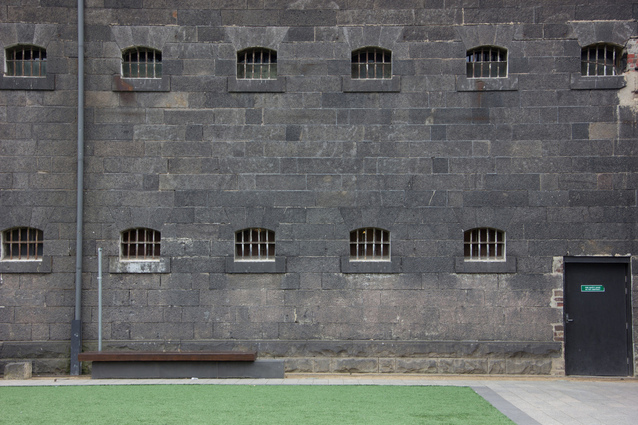In a dark, crammed room, the dampness rose like an invisible, oppressive enemy, piercing every joint and bone; while the foul stench of urine, faeces, dirt and sweat completely overwhelmed all the people in the room. Fear replaced sleep, as petty thieves and children endured these miserable conditions side-by-side with convicted murderers.
This is what a typical English prison was like in the early 1800s. The aim was not just to lock people up, but to punish them severely.
But when Elizabeth Fry (1780–1845), a wealthy banker’s daughter and mother of eleven children, visited Newgate Prison in London in 1813 and witnessed the terrible state in which prisoners were forced to exist, she was stirred into action.
Elizabeth Fry’s Christian faith and keen interest in social justice meant she was very aware of the Bible’s teachings about how people should treat others, no matter what their life circumstances: for example, Jesus once told a story in which he said: ‘I needed clothes and you clothed me, I was sick and you looked after me, I was in prison and you came to visit me.’
Prompted by her faith and her compassionate desire to see prison conditions improve, Fry founded the Association for the Improvement of Female Prisoners in London’s Newgate Prison. Its goal was to provide clothing, education and employment opportunities for the women, introduce them to the teachings of the Bible, and help equip them to be ready to leave prison and live better lives.
The work of the Association was very successful. The government and the public were impressed with the way the women prisoners now conducted themselves with calm, disciplined behaviour and a positive attitude to their work.
Fry’s Christian compassion made a significant difference in the lives of these prisoners. It also helped to establish the idea of prison visiting and caring for prisoners at a time when few people thought that prisoners deserved this kind of compassionate treatment.
Kevin Maddock, of Prison Fellowship Australia, comments on the way Fry’s work encouraged other Christians to view prisoners in this new way: ‘There were times in history when prisons had to plead with churches to keep people away… There were so many Christians visiting the prisoners and supporting ex-prisoners that the corrections officers of the day had to plead with the churches to ease up.’
The need for compassion towards prisoners continues to this day. Since those dark periods in prison history, governments have built sanitary prisons and improved standards of care, treatment and training. Yet the experience of time in prison hasn’t significantly reduced crime. Re-offending rates remain a significant problem both for repeat offenders and for the communities affected by their crimes.
People are still asking the question: ‘What can be done to improve this?’
Once again, just like Elizabeth Fry, people are looking beyond the legal system to think about how the community can be involved. A Canadian report to Parliament about the prison system said: ‘No penitentiary service can succeed without public participation… the community should participate with the job the prisons are doing, if for no other reason than for its own safety.’
And this is where the legacy of Elizabeth Fry and other early, biblically motivated prison reformers continues to have an impact.
In his book More God, Less Crime, criminologist Byron R Johnson demonstrates and argues that sacred and secular organisations should work together to improve society.
For example, Prison Fellowship USA’s faith-based prisoner entry program, Inner Change within the Minnesota Correctional Centre showed an effective lowering of recidivism (re-offending) among prisoners who had been in the program before their release. The impact of programs like this is not only good for the prisoners and their communities: it also saves a huge amount of money – in this case, an estimated US$3 million in its first six years.pPutting people in prison is a cost the government bears.
Chuck Colson, the founder of Prison Fellowship USA, says that many prisoners have a negative self-image. This causes many to view the world as a harsh and uncaring place. They need help to change the way they think about themselves and the world.
Today, many psychologists agree that changing a person’s thinking involves changing their internal belief system. ‘What do I believe about myself and others? Why am I here? What is wrong and right?’ How people answer these questions will affect the choices they make in life. And when prisoners are cared for with Christian compassion, amazing changes can happen in their thinking.
Ever since the ‘Golden Age’ of prison reform, when people like Elizabeth Fry began caring for prisoners, people have tried to identify and improve the personal situations and social conditions that lead to crime. The reasons for committing crimes can be very complicated, and sadly, people continue to be convicted of crimes and sent to prison.
However, there are still people whose faith prompts them to work with prisoners and try to improve their lives. The work that Elizabeth Fry started long ago remains relevant and important, and there is still much we can learn from her caring attitude and ministry to prisoners.
Written by Eleni Arapoglou.
Resources and further reading:
‘The First Big Society: Eighteenth-Century Britain’s Age of Benevolence’, Brent Sirota, ABC Religion & Ethics, 9 Jan 2014

